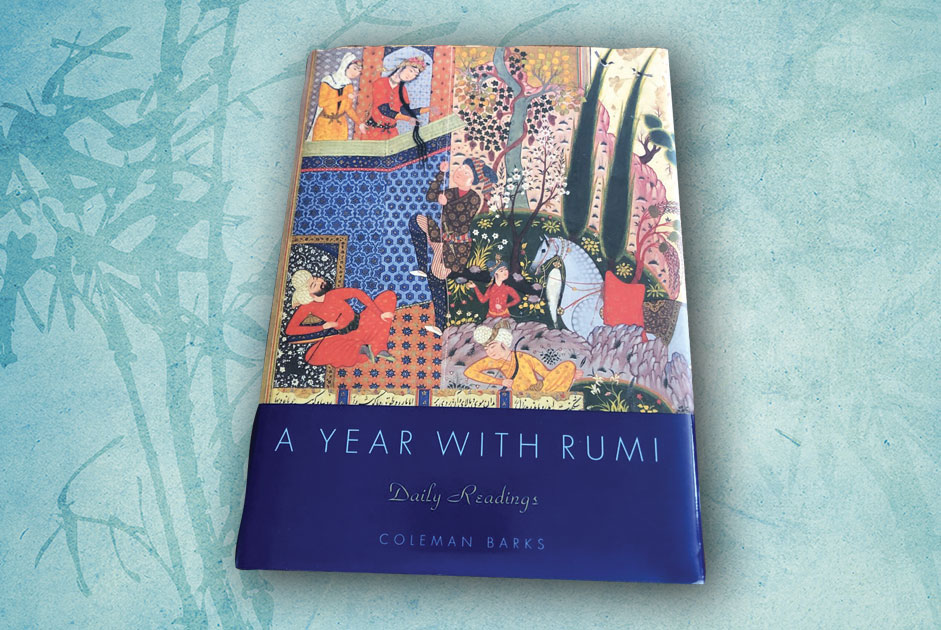Some years ago, my brilliant, compassionate friend Meg sent me the gift of a lifetime: a collection titled “A Year with Rumi: Daily Readings.” Leave it to Meg to find the perfect gift, one whose relevance will extend well beyond my days on the earth plane. Given that the collection covered 365 days of the year, I fully intended to read a poem a day. It didn’t work out that way. Instead, I found myself randomly opening to any-which page. Doing so was predictably unpredictable, sometimes providing welcome solace; at other times, offering unexpected inspiration; and often, delivering a serious soul punch that stopped me in my tracks as it provoked and challenged my spirit.
I’ve learned to relish the unpredictable company of Rumi’s words.
Jalāl ad-Dīn Mohammad Rūmī, also known as Jalāl ad-Dīn Mohammad Balkhī, Mevlânâ/Mowlānā, Mevlevî/Mawlawī was a 13th-century Persian poet, Hanafi faqih, Islamic scholar, Maturidi theologian, and Sufi mystic originally from Greater Khorasan in Greater Iran. You may know him as “Rumi.” I imagine that he would prefer the familiarity. In Coleman Bark’s introduction to this timeless volume, he writes of Rumi the man, and of his work, “When he died in 1273, members of every religion came to the funeral. Wherever you stand, his words deepen your connection to the mystery of being alive.”
That says it best for me. Because indeed, wherever you stand, Rumi speaks to the individual, yet universal, human soul. He speaks to me as he embraces the complete and utter mystery of the human experience and gives expression to every niggling nuance of it. It’s his unequivocal acceptance, his profound “let it be because it is” wisdom that gives me strength and encouragement every day of the year. Consider the following poem in which he likens the experience of being human with the unexpected comings and goings that characterize a guest house:
The Guest House
This being human is a guest house. Every morning a new arrival.
A joy, a depression, a meanness, some momentary awareness comes as an unexpected visitor.
Welcome and entertain them all! Even if they’re a crowd of sorrows, who violently sweep your house empty of its furniture, still treat each guest honorably. He may be clearing you out for some new delight.
The dark thought, the shame, the malice, meet them at the door laughing and invite them in.
Be grateful for whoever comes, because each has been sent as a guide from above.
I have reached for this poem countless times, especially when it’s the dark thought or a fresh sorrow that has come to call. I find consolation here, in the space of these 94 words, as Rumi reminds me that to invite in these unexpected visitors is to trust that there is “more beyond” this thought or this sorrow. The door to my guest house is indeed the portal through which my human experience enters. When I can sit with each “unexpected visitor” I can own my journey with awareness, courage, and grace.



















